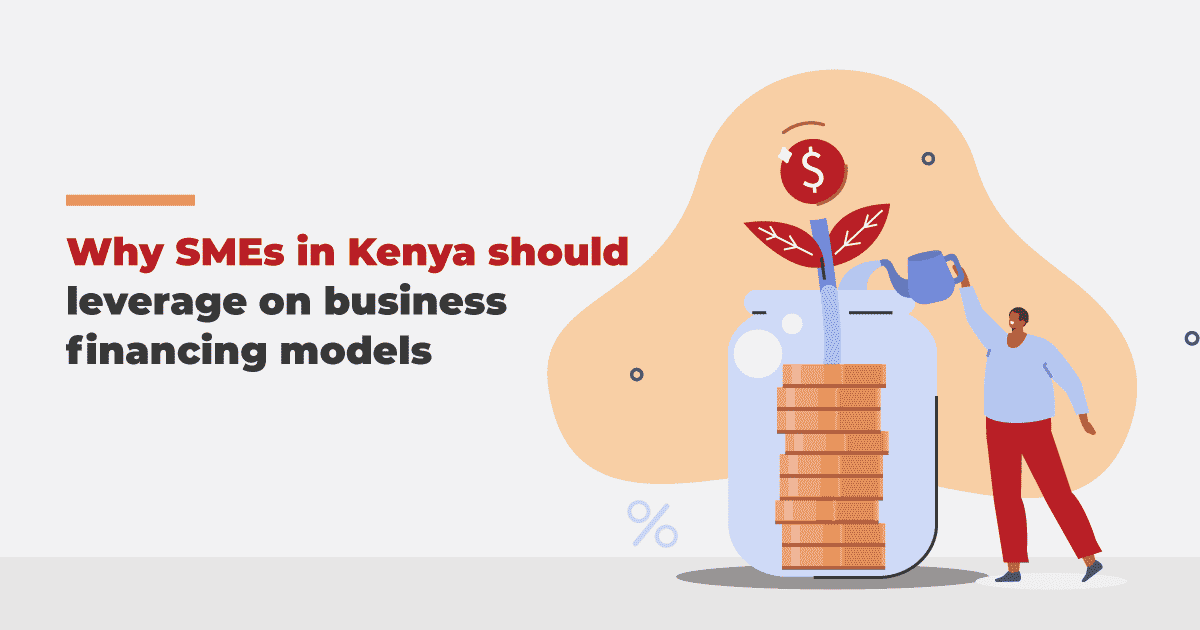Small and medium-sized enterprises (SMEs) are the backbone of most economies. They provide employment, drive innovation, and support economic growth. However, SMEs often face challenges relating to liquidity and majority of the time lack access to the financing they need to grow.
Kenya’s SMEs have been identified as the country’s key engine of economic growth and employment creation. Financing is one of the main challenges facing SMEs in Kenya, with only about a third of them having access to formal finance. This has led to low levels of profitability and sustainability for many SMEs.
In this blog post, we will discuss the benefits of leveraging financing models to help increase profitability and sustainability for Kenyan SMEs as well as explore different strategies that SMEs can use to obtain the necessary financing for success.
Table of Contents
What are the benefits of financing models for SMEs in Kenya?
There are many benefits that SMEs in Kenya can reap by leveraging on financing models. One of the main benefits is increased capital. This is because financial institutions are more likely to provide funding to businesses that have a sound financing model in place.
Additionally, a well-designed financing model can help SMEs in Kenya to attract investment from both local and foreign investors. This is because investors are always on the lookout for businesses with good growth potential and a solid plan for how their investment will be used.
Another benefit of financing models for SMEs in Kenya is that they can help businesses to better manage their cash flow. This is because a good financing model will include provisions for how funds will be repaid over time. This can help businesses to avoid taking on too much debt and can also make it easier for them to plan for future expenses.
This is where IMFact comes in. IMFact offers financing based on the purchase of the portfolio of trade receivables and no other collateral or guarantees are required. This provides an opportunity for the small business to increase its working capital without adding any debt to the balance sheet.
Kenyan business owners want a financial partner who shares their views. You may quickly, easily, and affordably access your working capital using IMFact. so that you can expand your company, purchase inventory and pay vendors. It’s addressing the lack of flexible and affordable working capital and offering SMEs the opportunity to fully finance their business through factoring.
How can SMEs make the most of financing models to achieve their business goals?
There are strategies that SMEs in Kenya can use to make the most from financing models and achieve their business goals.
Firstly, businesses need to have a clear understanding of their financial needs. This will help them to choose the right financing model for their business and ensure that they can access the necessary funds.
Secondly, businesses should develop realistic business plans that detail how they intend to use the funds from their financing model. This will help them to attract investment and also ensure that they can meet their financial obligations.
Thirdly, businesses should build strong relationships with financial institutions and investors. This will give them a better chance of securing funding and also help to establish trust and confidence in their business.
Finally, they should keep track of their progress and performance against their business goals. This will help them to make necessary adjustments to their financing model and ensure that they are on track to achieve their desired results.
Leveraging financing models can help SMEs in Kenya to overcome many of the challenges that they face. By using the strategies outlined above, businesses can make the most of these models and achieve their desired outcomes.
Are you an SME owner in Kenya? Here is the Webinar Replay of an insightful session with a team of experts on financing and funding strategies for achieving business financial sustainability.





